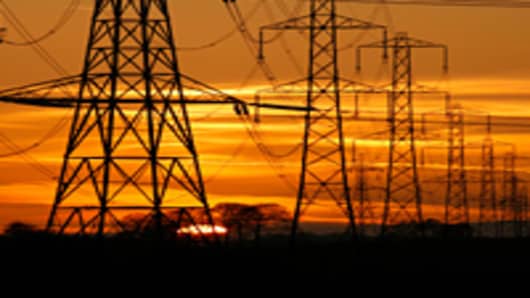Stung by member defections after controversial comments from one of its executives on climate change, the US Chamber of Commerce says its position was “misunderstood”, but analysts say the decision of several major companies to quit underscores the concern—and confusion—within Corporate America about how carbon emission regulation will impact the bottom line.
The issue first flared last week week after William Kovacs, the chamber’s senior vice president for environment, technology and regulatory affairs, was quoted by the Los Angeles Times as saying an Environmental Protection Agency public hearing should be turned into a “Scopes monkey trial of the 21st century”.
In comparing the environmental issue to the historic early 20th century legal case over creationism vs. evolution, Kovacs urged American business and policymakers to “make a fully informed, transparent decision with scientific integrity based on the actual record of the science” of climate change.
“It was taken out of context,” said chamber spokesman Eric Wohlschlegel. about Kovacs’ comments. “We are very supportive of climate change legislation. Our (emissions) policy is a priority for the organization. It is a top issue, People want to act, but do they know what it will do to our businesses?”
“It would be very difficult to challenge based on the science,” said Kyle Danish, partner and coordinator of the climate change and emissions trading practice at law firm Van Ness Feldman. “Even the Bush administration had built a case showing greenhouse gases were a problem.”
Utilities Pacific Gas & Electric , PNM Resources and Exelon quickly quit the 97-year old organization, drawing praise from EPA administrator Lisa Jackson.
“This whole discussion is a bit turned on its head,” Jackson said at a recent public event in San Francisco. “At some point, the environment became a partisan issue.”
Controversy aside, the defections may not be as surprising, given the companies proactive approach to climate change.
Though some credit goes to the prescience of their management teams, PGE, PNM and Exelon have also benefited from existing climate change regulations and decisions at the firms prior to the Kyoto Protocol a decade ago.
San Francisco-based PG&E, for instance, has made big moves in building and acquiring renewable energy generation to mitigate its carbon emissions. California also happens to mandate that 33% of energy produced in the state come from renewable sources by 2020.
Meanwhile, Chicago-based Exelon is the nation’s largest nuclear power plant operator—an energy source that, despite other environmental concerns, is carbon-emissions-free.
“If you’re a corporation that wants to engage in prudent planning, then you are focused on this (issue) like a laser beam to come up with a solution,” says Vickie Patton, deputy general counsel with the Environmental Defense Fund. “The companies with a 19th century mindset will be left behind.”
In that context, Corporate America’s goal may be both obvious and pragmatic. The agenda, however, has been clouded by the proliferation of dozens of organizations.
These partnerships between corporate members within a sector or across sectors, along with NGOs and governments at every level, generally promote some kind of carbon emissions regulation, but tend to focus on what’s best for their members, sometimes to the detriment of other sectors or their competition
Take the Business for Innovative Climate and Energy Policy coalition, BICEP, which has working for tough emissions regulation. The group has no members from high-emissions sectors, like utilities and energy, that will be most effected by any regulation.
It does count among its members such high profile, global brands as Levi Strauss, Gap , eBayStarbucks and Nike , which quit the Chambers board of directors Wednesday but will remain a member.
In contrast, the Chamber or Commerce’s membership is predominantly small, private companies (ten employees or less), without vocal public shareholders and global brands to protect, that typically greet the prospect of any increase in expense in today’s economic climate with skepticism.
“These are ‘mom and pop’ operations,” said Wohlschlagel of the Chamber, and that means yet another agenda. “The membership has a large consensus that the solution needs to be global.”
Proponents of such an approach want a stronger global policy in place first before the U.S. adopts anything, so that American companies aren't disadvantaged.
That means waiting at least until after the United Nations Climate Change Conference in Copenhagen this December. The conference is meant to generate the next Kyoto agreement, but given the condition of the world economy, prospects for any broad agreement that includes key developing world carbon emitters such as China and India, is dim, especially since those nations are looking to the U.S. for leadership.
“The challenge is that there’s an inter-relationship between US action and international action” Danish said. “It becomes a ‘who goes first’ kind of problem.”
The EPA's Jackson says waiting or doing nothing isn't an option. While domestic regulation is still crucial, she said, on a global front "we can also build on pretty robust bilateral agreements with China, Mexico, Brazil, India" that have focused on other non-carbon related environmental and regulatory issues.
Jackson said the Obama administration feels it has already done a lot to prepare American business for carbon regulation.
“This is a market-based approach to emit carbon,” she said of the provisions in the Markey-Waxman bill passed by the House of Representatives—which is what many business leaders wanted. “It’s a little disappointing to watch the line get moved.”



